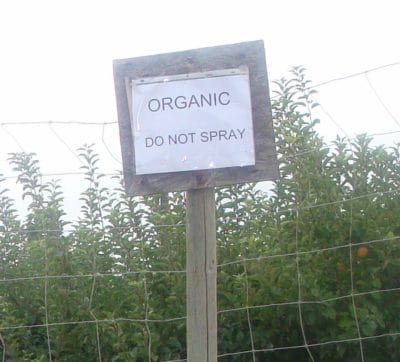
Farmers in Oregon might soon have to increase defense against Monsanto. The bill under consideration permits farmers to take legal action if their crops are found to be contaminated by genetically-modified organisms. Oregon’s House Bill 2738 “Allows cause of action against patent holder for genetically-engineered organism present on land without permission of owner or lawful occupant.”
Contamination by GMOs can be catastrophic for farmers. This “genetic drift” is nearly impossible to prevent; it usually happens naturally through wind or pollination. HB 2739 could also prevent Monsanto from bullying farmers for “seed piracy” when they are found with unauthorized GMO crops. Farmers who grow GMO crops have to pay licensing feeds, and are subject to inspection and regulation from the seed companies. Even more, they must buy the products annually, or they could be prosecuted for patent infringement.
Losses due to contamination are partly economic— currently, many export markets have banned GMOs and refuse to work with farmers that use them. Worldwide, the demand for non-GMO foods is growing. Farmers could be revoked organic certification, which lowers this premium on their product. Further, the chemicals used in the production of genetically-modified seeds can lead to resistance to diseases and pests. The evolution of pesticide-resistant super crops is detrimental to humans, the environment, biodiversity, soil health and crop security.

Friends of Family Farmers wrote a testimony in support of the bill, citing “Partly because Oregon is not a major GE crop-producing state, key organic, and conventional farming sectors face significant market risk and legal liability from some of the genetically-engineered crops that are grown here and that may be in the future.” The Center for Food Safety has also testified on behalf of the bill, pointing out that “When a company sells a product that winds up causing damages, our legal system has long held that such a company is liable for its products’ damage”.
Under the guidelines of HB 2739, plaintiffs stand to receive compensation of up to three times the amount of damages incited by GMO contamination. The hope is that the bill will not only hold seed companies accountable for the unwanted presence of their products but also encourage them to employ stricter measures to regulate contamination. Fortunately, genetic tests can make it easy for farmers to identify the invaders.
HB 2739 is not the only bill being considered this year related to farmers’ protection from GMOs. House Bill 2469 could allow local government to prevent the production or use of seeds or seed products that could harm non-GMO crops. Some counties in Oregon have sought to entirely outlaw the use of genetically-engineered crops in order to protect organic farmers.


